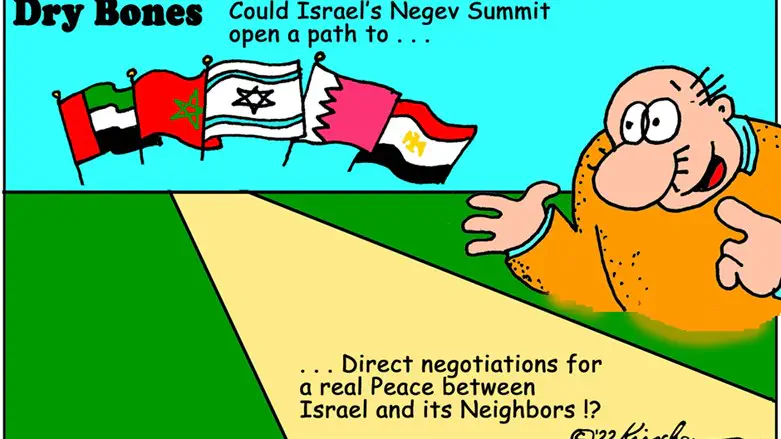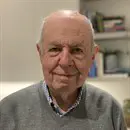
The Negev Summit (Summit) taking place on 27 and 28 March – hosted by Israel’s Foreign Minister Yair Lapid– could be the catalyst for promoting the beginning of direct negotiations - without preconditions - between Israel, Jordan, the Palestine Liberation Organisation (PLO) and Egypt - on the allocation of sovereignty in Judea and Samaria (West Bank) and Gaza.
Summit attendees will include:
US Secretary for State Antony Blinken
Minister of Foreign Affairs of the United Arab Emirates H.H. Sheikh Abdullah bin Zayed
Minister of Foreign Affairs of Bahrain Dr. Abdullatif bin Rashid Al Zayani,
Minister of Foreign Affairs of Morocco Nasser Bourita, and
Minister of Foreign Affairs of Egypt Sameh Shoukry.
Jordan’s Foreign Minister Ayman al-Safdi will be meeting PLO leader Mahmoud Abbas in Ramallah during the Summit. However - according to Israel’s Channel N12 - al-Safdi may join the Summit before the event is concluded.
On 18 March Principal Deputy Spokesperson in the US State Department – Jalina Porter – had announced Blinken’s visit to the Middle East without mentioning the Summit.
Porter articulated the Biden Administration’s views on creating a second Palestinian Arab State in former Palestine – in addition to Jordan:
... “the Biden-Harris administration believes that there should be a viable and democratic Palestinian state living in peace alongside a Jewish and democratic state. We believe that a negotiated two-state solution is the best way to resolve the Israeli-Palestinian conflict, and the administration has also made clear on numerous occasions that Israelis and Palestinians alike equally deserve to live in security, prosperity, and freedom.”
Porter’s choice of the term “Israeli-Palestinian conflict” was unfortunate. A more appropriate term would have been the “Arab-Jewish conflict” which has been raging unresolved in former Palestine for more than 100 years – long before the terms “Israelis” and “Palestinians” were created in 1948 and 1964 respectively.
In this long-running conflict – every word counts.
United Nations General Assembly Resolution 181 - passed in 1947 - had called for Western Palestine - today called Israel, Judea and Samaria ('West Bank') and Gaza – to be partitioned into one Arab State and one Jewish State. This area comprised 22% of the territory in the 1922 League of Nations Mandate for Palestine.
Jerusalem was to become a separate entity to be governed by a special international regime.
The remaining 78% of former Palestine – Transjordan - today called Jordan - had already achieved its independence in 1946. This area was exclusively populated by Arabs – having been excluded from Jewish settlement in 1922 by article 25 of the Mandate for Palestine.
The Jews accepted Resolution 181 – but it was rejected by the Arabs - resulting in the invasion of Western Palestine by the armies of six Arab States - Egypt, Syria, Transjordan, Lebanon, Saudi Arabia and Iraq.
Transjordan conquered East Jerusalem, Judea and Samaria and unified those areas with Transjordan to form a new territorial entity - renamed Jordan in 1950 – until these areas were lost to Israel in the 1967 Six Day War.
Egypt conquered Gaza and administered it between 1948 and 1967.
Summit participant – Egypt’s Sameh Shoukry - held talks in Cairo three weeks ago with Ziad Abu Amr — the Palestinian Deputy Prime Minister and PLO Executive Committee Member — and Palestinian Minister of Social Development Ahmad Majdalani.
Shoukry then reportedly expressed the importance of continuing contact with various regional and international parties concerned in order to create the appropriate atmosphere for reviving the negotiations between the Palestinian and Israeli sides at the earliest opportunity.
The Summit could well be creating that appropriate atmosphere which eventually sees Jordan-PLO-Egypt negotiations with Israel to finally complete the solution first contemplated in 1922 – the division of former Palestine between Arabs and Jews.
Author’s note: The cartoon — commissioned exclusively for this article — is by Yaakov Kirschen aka “Dry Bones”- one of Israel’s foremost political and social commentators — whose cartoons have graced the columns of Israeli and international media publications for decades.
